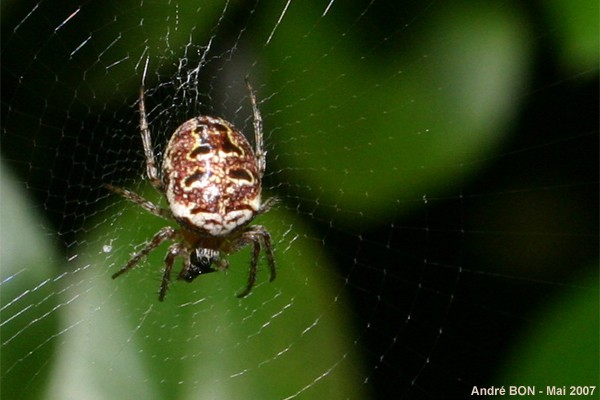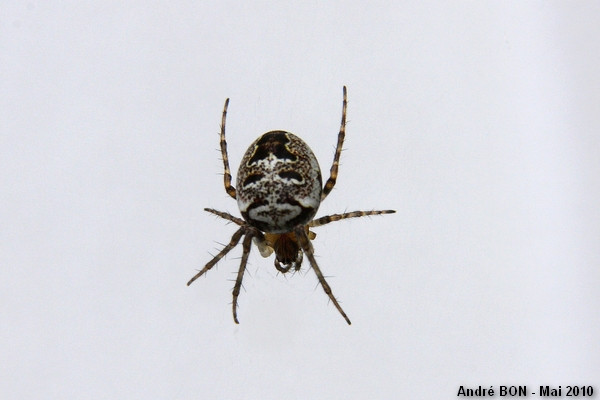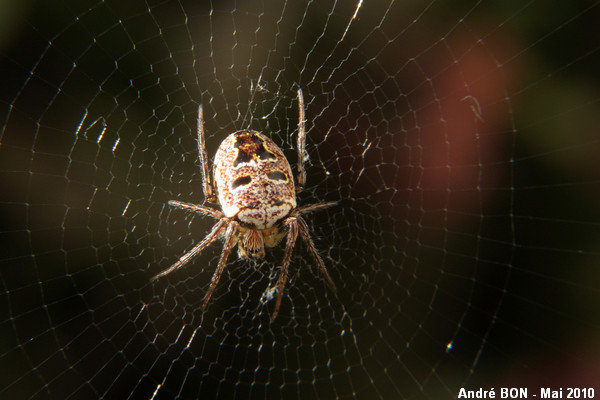


| Zilla diodia (Walckenaer, 1802) |



|
|
Scientific name: Zilla diodia (Walckenaer, 1802) Common name: French name: Diodie tête de mort Order: Araneae Family: Araneidae Size: 4 mm for the female, 2.5 mm for the male. Biotope: Scrubs, bushes, hedgerows, parks, gardens, road sides. Web: Large size orb-web compared to the small size of the spider. It is vertically located in the shady bottom of bushes, never higher than 2 meters from the ground. It is finely meshed and there is a high number of radii, often more than sixty. Observation period: You can start to observe adults in May. Geographic area: Europe, east to Central Asia. |
The Zilla Diodia can almost always be found at the centre of its web. The abdomen is oval-shaped. It is a yellowish-white background colour, marbled with dark on the dorsal side. Dark patches, circled with white, draw the shape of a death's head, from where it has got its French common name: Diodie tête de mort. |
| [To know more about the Zilla diodia] [Next picture] [Top] |

|
It has been rather easy to find Zilla dioda spiders in my garden. You just need to closely look at the bottom of hedgerows. Pictures are not so easy to shoot, mainly because of the very small size of this spider. I do need to buy true macro lenses. |
| [To know more about the Zilla diodia] [Next picture] [Previous picture] [Top] |

|
This Zilla diodia had the good idea to spin its web close to the door of the garage which is painted in white. This enables me to shoot a picture with a nice uniform white background. |
| [To know more about the Zilla diodia] [Previous picture] [Top] |

|
Here is another picture shot using the tripod and the live view mode. I have counted 59 radii on this web! |